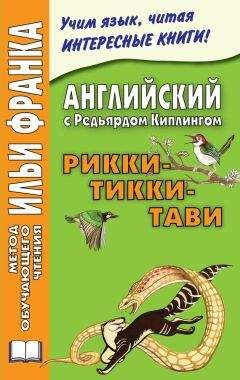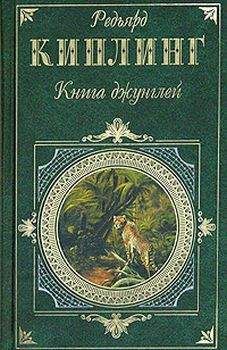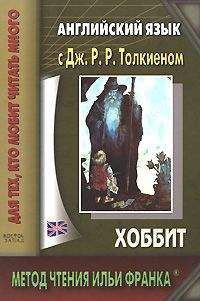Rikki-tikki knew better than to waste time in staring. He jumped up in the air as high as he could go, and just under him whizzed by the head of Nagaina, Nag’s wicked wife. She had crept up behind him as he was talking, to make an end of him. He heard her savage hiss as the stroke missed. He came down almost across her back, and if he had been an old mongoose he would have known that then was the time to break her back with one bite; but he was afraid of the terrible lashing return stroke of the cobra. He bit, indeed, but did not bite long enough, and he jumped clear of the whisking tail, leaving Nagaina torn and angry.
“Wicked, wicked Darzee (скверный, скверный Дарзи; wicked – злой, злобный; плохой, отвратительный, мерзкий )!” said Nag, lashing up as high as he could reach toward the nest in the thorn-bush (взмыв вверх, насколько мог дотянуться, по направлению к гнезду на кусте терновника; to lash – хлестать, стегать; нестись, мчаться). But Darzee had built it out of reach of snakes (но Дарзи построил его вне пределов досягаемости для змей; to build – строить; reach – протягивание; предел досягаемости, досягаемость), and it only swayed to and fro (и оно = гнездо только покачивалось из стороны в сторону; to sway – качать/ся/, колебать/ся/).
Rikki-tikki felt his eyes growing red and hot (Рикки-Тикки почувствовал, что его глаза становятся красными и горячими; to feel; to grow – расти; становиться) (when a mongoose’s eyes grow red (когда глаза мангуста краснеют), he is angry (/это значит, что/ он сердится)), and he sat back on his tail and hind legs like a little kangaroo (и он сел на свой хвост и задние лапки, как маленький кенгуру), and looked all round him (огляделся вокруг), and chattered with rage (и застрекотал от ярости; to chatter – щебетать, стрекотать). But Nag and Nagaina had disappeared into the grass (но Наг и Нагайна исчезли в траве; to disappear – исчезать).
“Wicked, wicked Darzee!” said Nag, lashing up as high as he could reach toward the nest in the thorn-bush. But Darzee had built it out of reach of snakes, and it only swayed to and fro.
Rikki-tikki felt his eyes growing red and hot (when a mongoose’s eyes grow red, he is angry), and he sat back on his tail and hind legs like a little kangaroo, and looked all round him, and chattered with rage. But Nag and Nagaina had disappeared into the grass.
When a snake misses its stroke (когда змее не удается удар = змея промахивается; to miss – потерпеть неудачу, не достичь цели, промахнуться), it never says anything or gives any sign of what it means to do next (она никогда ничего /не/ говорит и /не/ подает никакого знака относительно того, что собирается сделать дальше; to mean – намереваться, собираться). Rikki-tikki did not care to follow them (Рикки-Тикки не захотел следовать за кобрами; to care – беспокоиться, тревожиться; иметь желание), for he did not feel sure that he could manage two snakes at once (потому что он не был уверен, что сможет справиться с двумя змеями сразу; to feel – чувствовать; sure – уверенный; to manage – справляться). So he trotted off to the gravel path near the house (поэтому он рысью выбежал = потрусил на посыпанную гравием дорожку возле дома; to trot – идти рысью; to trot off – удалиться рысью; gravel – гравий; галька), and sat down to think (и сел подумать). It was a serious matter for him (это было серьезное дело для него).
If you read the old books of natural history (если вы почитаете старые книги по естествознанию; natural history – естествознание; natural – естественный, природный; history – история; историческая наука), you will find they say that when the mongoose fights the snake and happens to get bitten (вы найдете, что в них говорится, что когда во время сражения cо змеей мангуст, случается, бывает укушен; to fight – драться, сражаться; to happen – случаться, происходить; /случайно/ оказываться; to bite – кусать/ся/), he runs off and eats some herb that cures him (он убегает и съедает какую-то травку, которая исцеляет его; to cure – излечивать, исцелять). That is not true (это неправда). The victory is only a matter of quickness of eye and quickness of foot (победа – только в быстроте глаза и ног; matter – материя; дело; quick – быстрый) – snake’s blow against mongoose’s jump (удар змеи против прыжка мангуста) – and as no eye can follow the motion of a snake’s head when it strikes (а /тот факт, что/ никакой глаз не в силах уследить за движением головы змеи, когда она наносит удар; to follow – следовать, идти за; to strike – ударять/ся/, наносить удар), this makes things much more wonderful than any magic herb (делает /победу мангуста/ удивительнее любой волшебной травы).
When a snake misses its stroke, it never says anything or gives any sign of what it means to do next. Rikki-tikki did not care to follow them, for he did not feel sure that he could manage two snakes at once. So he trotted off to the gravel path near the house, and sat down to think. It was a serious matter for him.
If you read the old books of natural history, you will find they say that when the mongoose fights the snake and happens to get bitten, he runs off and eats some herb that cures him. That is not true. The victory is only a matter of quickness of eye and quickness of foot – snake’s blow against mongoose’s jump – and as no eye can follow the motion of a snake’s head when it strikes, this makes things much more wonderful than any magic herb.
Rikki-tikki knew he was a young mongoose (Рикки-Тикки знал, что он молодой мангуст), and it made him all the more pleased to think that he had managed to escape a blow from behind (а потому тем сильнее радовался при мысли, что ему удалось избежать удара сзади; to please – радовать, доставлять удовольствие; to manage – руководить, управлять; ухитриться, суметь сделать; to escape – бежать, совершать побег; избежать /наказания, опасности/, спастись). It gave him confidence in himself (это придало ему уверенности в себе; confidence – вера, доверие), and when Teddy came running down the path (и когда на дорожке показался бегущий Тэдди; to run – бежать), Rikki-tikki was ready to be petted (Рикки-Тикки был готов, чтобы его приласкали; to pet – баловать, ласкать).
But just as Teddy was stooping (но, как только Тэдди наклонился к нему; to stoop – наклонять/ся/, нагибать/ся/), something wriggled a little in the dust (что-то слегка зашевелилось в пыли; to wriggle – извивать/ся/), and a tiny voice said (и крошечный = тонкий голос сказал; tiny – очень маленький, крошечный): “Be careful (берегись; careful – заботливый; осторожный, осмотрительный; to be careful – остерегаться). I am Death (я – Смерть)!” It was Karait (это был Карайт), the dusty brown snakeling that lies for choice on the dusty earth (пыльно-коричневая змейка, которая любит лежать: «лежит преимущественно» на пыльной земле; choice – выбор; for choice – преимущественно, предпочтительно); and his bite is as dangerous as the cobra’s (и ее укус так же опасен, как /и укус/ кобры). But he is so small that nobody thinks of him (но она так мала, что никто не думает о ней), and so he does the more harm to people (и потому она приносит людям еще больший вред).
Rikki-tikki knew he was a young mongoose, and it made him all the more pleased to think that he had managed to escape a blow from behind. It gave him confidence in himself, and when Teddy came running down the path, Rikki-tikki was ready to be petted.
But just as Teddy was stooping, something wriggled a little in the dust, and a tiny voice said: “Be careful. I am Death!” It was Karait, the dusty brown snakeling that lies for choice on the dusty earth; and his bite is as dangerous as the cobra’s. But he is so small that nobody thinks of him, and so he does the more harm to people.
Rikki-tikki’s eyes grew red again (глаза Рикки-Тикки снова покраснели; to grow – расти; становиться), and he danced up to Karait with the peculiar rocking, swaying motion that he had inherited from his family (и он подскочил к Карайту тем особенным подпрыгивающим, раскачивающимся движением, которое унаследовал от своей семьи: «от своих предков»; to dance – плясать, танцевать; прыгать, скакать; to rock – качать/ся/, колебать/ся/; трястись; to sway – качать/ся/, колебать/ся/). It looks very funny (выглядит это очень смешно), but it is so perfectly balanced a gait that you can fly off from it at any angle you please (но такая поступь позволяет настолько совершенно сохранять равновесие: «но это такая совершенно сбалансированная поступь», что при желании можно отскочить в любую сторону под любым углом; to balance – сохранять равновесие, уравновешивать; to fly – летать; to fly off – соскакивать, отлетать; to please – радовать; желать, хотеть), and in dealing with snakes this is an advantage (а в общении со змеями это /большое/ преимущество; to deal – раздавать, распределять; общаться, иметь дело). If Rikki-tikki had only known, he was doing a much more dangerous thing than fighting Nag (если бы Рикки-Тикки только знал, что Карайт гораздо более опасен: «делал более опасную вещь», чем сражающийся Наг), for Karait is so small (потому что он так мал), and can turn so quickly (и может поворачиваться так быстро = такой юркий), that unless Rikki bit him close to the back of the head (что, если Рикки-Тикки не укусит его близко к задней части головы; to bite – кусать/ся/), he would get the return stroke in his eye or his lip (он получит ответный удар в глаз или губу; return – возвращение; ответный /выстрел, удар/). But Rikki did not know (но Рикки-Тикки /этого/ не знал). His eyes were all red (его глаза были совсем красные = горели), and he rocked back and forth (и он /прыгал/, качаясь, взад и вперед; to rock – качать/ся/, колебать/ся/), looking for a good place to hold (отыскивая лучшее: «хорошее» место для захвата; to look for – искать; to hold – держать, удерживать; hold – захват; сжатие). Karait struck out (Карайт бросился; to strike – ударять/ся/, наносить удар; to strike out – атаковать, набрасываться). Rikki jumped sideways and tried to run in (Рикки отпрыгнул в сторону и попытался сбежать /в дом/), but the wicked little dusty gray head lashed within a fraction of his shoulder (но злобная маленькая пыльно-серая голова пронеслась около самого его плеча; to lash – хлестать, стегать; нестись, мчаться; fraction – дробь; доля, часть), and he had to jump over the body (и ему пришлось перепрыгнуть через тело /змеи/), and the head followed his heels close (а /ее/ голова следовала за ним по пятам; heel – пята, пятка; close – /нареч./ близко, около; рядом).




